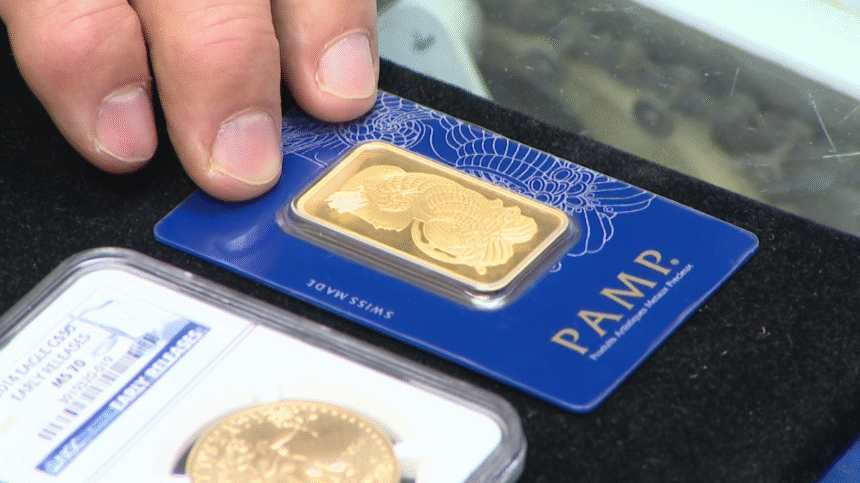An unsettling incident recently unfolded in Boston involving a gold dealer, Lou Chorney, who successfully intervened to protect an older woman from falling victim to a sophisticated scam. Chorney, who has decades of experience in the gold business, noticed the urgency in the woman’s voice as she insisted on purchasing nearly half a million dollars in gold bars.
Typically, Chorney recommends coins over bars for their practicality, but the woman was adamant and rejected his suggestion to place the gold in a safe deposit box, expressing vague confidence about keeping it secure. This raised red flags for Chorney, especially in light of a recent warning from the FBI regarding a rise in scams targeting seniors, particularly through convincing them to pay large sums in cash or precious metals.
With these thoughts in mind, Chorney decided to call the FBI while he awaited the delivery of the gold. Agents were able to step in just before the woman was set to leave in an Uber arranged by a scammer to pick up the $460,000 in gold bars. The intervention came in the nick of time, as the plan was for the woman to deliver the gold to an accomplice of the fraud scheme.
James Crowley, assistant special agent in charge of the Boston FBI, explained the motivations behind these scams, noting that gold bars are attractive targets due to their portability and high value, making them a popular medium for criminals looking to quickly convert fraud into cash. The FBI has recorded a significant increase in what they classify as “gold bar courier scams.” In these schemes, victims are often pressured to act quickly, leaving them little time to consult family or friends, which ultimately enables scammers to successfully execute their plans.
From 2023 to May 2025, the Boston office documented 103 cases across Massachusetts, Maine, New Hampshire, and Rhode Island where couriers were dispatched to collect cash or gold from victims. Alarmingly, these incidents led to total losses amounting to more than $26 million, with Massachusetts alone accounting for 59 cases that resulted in losses exceeding $18 million. On a national scale, the FBI identified over 1,700 similar instances with cumulative losses approaching $186 million.
Chorney’s swift action ensured that the woman was not added to this grim tally, a fact he reflects on with relief, stating, “This woman is a very nice woman. She’s smart, but it happened where she was being defrauded, and I’m just extremely gratified that I could help.”
The FBI has recognized several prevalent scams relating to gold that exploit seniors. These include grandparent scams, where perpetrators pose as relatives in trouble, government impersonation scams that involve threats of legal action, and tech support scams that fabricate issues with personal computers. Crowley emphasized that legitimate government agencies would never request individuals to purchase gold or other valuables.
To bolster personal safety, the FBI recommends individuals refrain from sharing excessive personal information online, avoid engaging in transactions with strangers, and exercise caution while clicking on unknown digital links. They also urge anyone who suspects they have been targeted by fraud to file a report with the FBI’s Internet Crime Complaint Center, including as many transaction details as possible to aid investigations.








